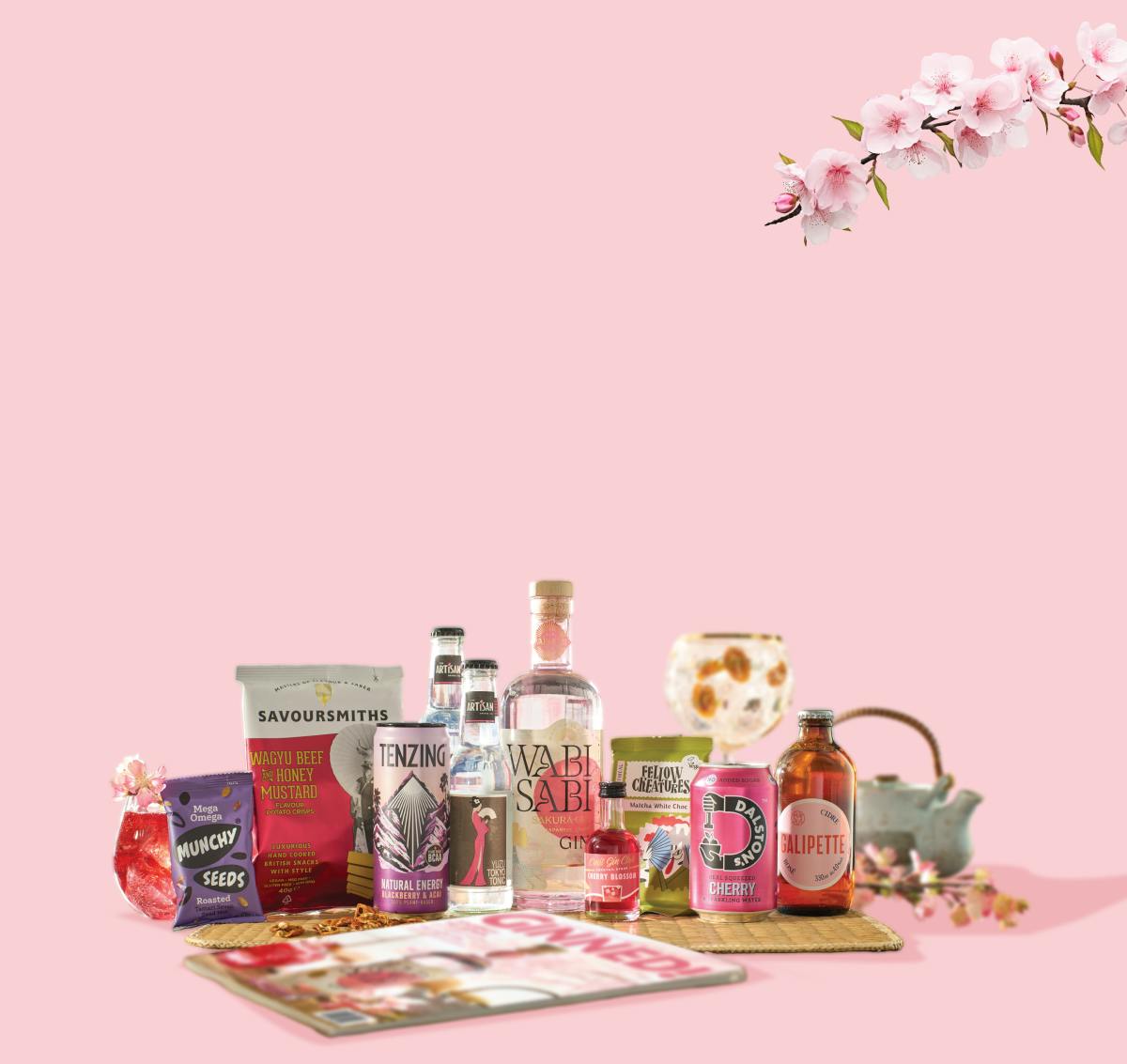Total flexibility, no commitment
A world of unique, crafted spirits
Easy, free and reliable delivery

GIN OF THE MONTH: CRAFT Q&A WITH MAKAR GLASGOW GIN & THE SCOTTISH CRAFT DISTILLERS ASSOCIATION
Below is an excerpt from GINNED! Magazine about Makar Glasgow Gin. Every month, Craft Gin Club members receive a bottle of amazing small-batch gins accompanied by GINNED! Magazine which is full of features about the gin, the distillery and loads of fascinating features.
Liam Hughes, CEO at the Glasgow Distillery Company, is one of the founding members of the Scottish Craft Distillers Association along with its Chairman, Director of the Strathearn Distillery - the smallest distillery in Scotland - Tony Reeman-Clark (pictured). The association’s purpose is to “encourage the growth of craft distilling in Scotland by assisting the development of member companies,” a number that is rapidly growing.
After signing its constitution in March of 2014, the association has 11 member distilleries in operation. Eleven more are expected to go online next year and then, in 2016, another 40. The association’s growth mirrors the growth of the industry itself as an increasing amount of spirits entrepreneurs are joining the craft craze.
GINNED! Magazine spoke with Liam and Tony about the craft distilling movement in the UK to find out its origins, where it stands today, and where it is going.
What kicked off the craft boom in the UK?
Tony: Many entrepreneurs first looked to the States where craft brewing has been developing for some time with craft distilling picking up speed over the past few years. The growth in the US helped convince budding brewers and distillers in the UK to get into the trade.
Then, some of those distillers convinced the HMRC to begin granting licenses for small stills. They discovered a bit of a loophole about the size of stills in an HMRC statute, Public Notice 39, which regulates spirits production. Before, HMRC would only grant licenses to those that wanted to start with a still with capacity greater than 1,600 litres. This was a completely arbitrary number that dated back to the 1800s when a lawmaker in Edinburgh, who also happened to be a distiller, needed to put some restrictions on still size. When he realized his still held 1,600 litres, that’s the lower limit he chose.
Today, HMRC reserves the right to deny a license to those attempting to open a distillery with small stills, but they are much more open to it.
Mike: There’s also the story aspect which is very important. Consumers are changing and people increasingly want to know the origin of the products they consume. Craft distillers have unique stories that resonate well with the public, particularly on a local level.
Who are these small, local distillers? What are their ambitions in building spirits brands?
Tony: At the Scottish Craft Distillers Association, we’ve seen a wide variety of professional backgrounds in new distillers, from potato farming to ex-engineers and offshore oil workers to helicopter pilots. I for one have a background in IT. There’s even one distiller that’s a former manager at the NHS and another that’s attempting to turn the town jail into a distillery. The SCDA also has a member from Argentina and from the US. This diversity gives the movement its dynamism.
Liam: Ambitions differ from distiller to distiller. Some are happy to continue producing on a small scale and selling locally. Others have larger ambitions. At the moment, I don’t think that any craft distillery with the goal of producing whisky has the means to build a global whisky brand - whisky is a long play with a minimum of three years of maturation and usually much more. You have to have a lot of working capital. That being said, we all have commercial pressures that we need to balance with how much product we can make.
A lot also comes down to the quality of the product you’re making. At GDC we could produce twice as much product as we do, but in increasing our production, we would compromise our quality. That’s not something we have any intention of doing.
What has been the reaction of big industry players to the craft movement in the UK?
Tony: There are industry bodies that haven’t been that supportive. For instance, the Scotch Whisky Association was probably against small players as the craft industry evolved. But a recent change at the top of the Association has made it more sympathetic to us: the new boss wants to listen to and work with us.
Liam: Bigger players in the industry with whom I’ve dealt with have been very supportive and also interested in what we’re doing. They understand the challenges that small distillers face and respect those challenges. I’ve had a lot of help from surprising sources when building the Glasgow Distillery Company.
With all of these new distillers out there, is there a craft spirits bubble?
Tony: Watching the craft brewer movement in particular, where it seemed that a new brewer was launching every week I was thinking ‘that’ll be the end of it’. But they’re still proliferating as are spirits producers. People today want to drink less and drink better.
Liam: Bubble? I suppose it could be. But I also think it’s a huge space. For instance, five years ago there were something like 150 members of the American Distillers Institute. Today there are over 800. So it’s a movement that keeps on growing and the demand on the consumer side is there.
Is the fact that spirits duties are exactly the same for small distillers as they are for large a burden for craft distillers?
Tony: The duty scheme as is certainly doesn’t help independent distillers. It would be great to see a similar sliding scale to that of the brewing industry. Brewers pay different duties based on production volume. If a brewer makes under what I think is 30,000 hectolitres of beer per year, they’ll only pay half the duty than a brewer making over 60,000 hectolitres. Cider producers don’t pay any duty up to 8,000 litres of pure alcohol. The sliding scale makes things a little more difficult for HMRC but in the end it’s a fair system that would certainly help small distillers.
Liam: We’re paying somewhere around £13 for VAT and duty per bottle. When you take into consideration that our RRP is £29, the government is earning more from our sales than any other member of our gin’s value chain. If we only had to pay, for instance, half the duty, we could take that money and put it back into the business.







